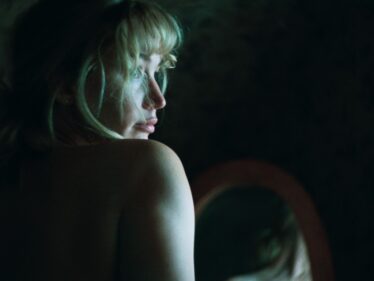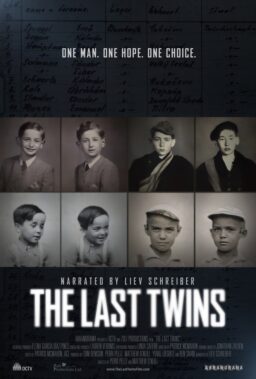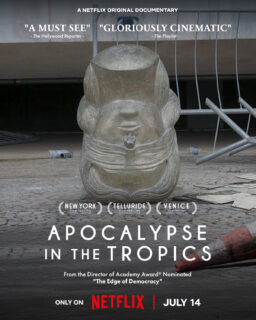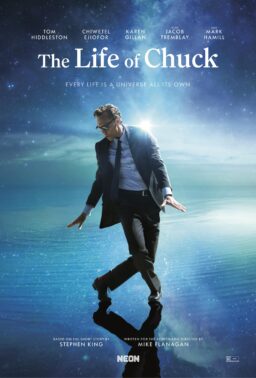Billy Dee Williams has been called the black Clark Gable and, if pressed, he’ll agree that the comparison has some merit. Now 38, Williams spent a long apprenticeship on Broadway, in television and as a supporting film actor before he made his breakthrough as Chicago Bear Gale Sayers in “Brian’s Song ” in 1971.
A year later, he starred with Diana Ross in “Lady Sings the Blues” and won an Oscar nomination. He was in town recently to promote his newest film, “Mahogany,” in which he plays a black activist running for a Chicago city council seat and in love with Diana Ross, who yearns to become a fashion designer. Despite generally lukewarm reviews, the movie is a box-office hit at the Chicago Theater.
Q. How would you respond to criticism of “Mahogany” – that it’s not very serious politically, that it’s old-fashioned?
A. It is old-fashioned. It’s geared to the people. It’s a fantasy, a love story, a big Hollywood extravaganza – and, I think, necessary. It’s nice to see some positive black characters on the screen, some positive images, something more than rats and poverty.
Q. Why do audiences like the movie so much? In New York, they’ve been showing it 24 hours a day.
A. It’s a kind of concept that appeals to people. There’s an interesting point of view. Here’s this black chick, just like a lot of other ambitious young women, who has ability and talent and the determination to follow through. When she goes to Rome (and Anthony Perkins who plays a famous fashion photographer), to push her career as a dress designer she makes a move that doesn’t agree with some of the concepts of the community. Yet still she loves this guy that I play. It’s an interesting conflict.
Q. And she runs into these bizarre characters?
A. Yeah, she’s very naive when she leaves Chicago. Oh, she knows the character played by Perkins isn’t exactly your average normal person, but she knows nothing about the world she’s getting into. It’s a classic Hollywood situation.
Q. The character you play, the black reformer, has been compared to Jesse Jackson.
A. Yeah, but if you want to talk in terms of Jesse, he’s more of a winner. And this guy isn’t a winner. He’s noble, he’s sensitive, he wants to change things, preserve the neighborhoods. But he doesn’t have his thing totally together. What he does know is that he loves Mahogany, and that she’s gotten herself into a world he doesn’t like.
Q. There’s a scene where you and Diana Ross walk past burned-out slums and urban renewal clearance, and you tell her about your dreams. Did you have any trouble getting the implied criticism of Chicago past City Hall?
A. None that I know of. Originally we were going to shoot in New York, but Chicago seemed like a better choice. It hasn’t been seen in the movies so often. As for the criticism, the movie doesn’t really get into a heavy thing about the issues. We stayed away from deep-rooted community affairs. That wasn’t the purpose in the first place. We had this romantic situation, and then we had a conflict of interest in which Diana Ross is caught between two men and also sees her ambitions threatened. It’s meant to entertain more than anything else.
Q. Even though there’ve been times when you were out of work, you’ve never made a so-called blaxploitation film. There’s a lot of money in them. Why have you stayed away?
A. Well, a couple of things. First, for myself, if I’m trying to obtain a certain longevity in my career, to establish myself as a certain kind of star, I don’t want that black exploitation image. I look for roles that are more positive, like this one or “Bingo Long.” And, the other thing…those exploitation movies are really very demeaning for everyone involved, including the audience. They have such a negative view of the whole relationship between blacks and whites, and the whites are always put down so violently, and for the blacks in the audience it’s like mental masturbation. In the fantasy, they’re getting back at Whitey, retaliating, and when they come outside not a thing has changed. It’s more important to create films that will bring people together.
Q. You mentioned “Bingo Long,” – “Bingo Long’s Traveling All-Stars and Motor Kings” – which was written by a novelist from Chicago, Bill Brashler.
A. Yeah, I was just talking to Bill this morning. It’s a movie we’ve just finished, about the black professional baseball leagues, and I think we really got into the lives of those people. I play Bingo, who is sort of based on Satchel Paige, and I’m running the club, trying to get games, hold the team together. James Earl Jones plays a character something like Josh Gibson – very ambitious and talented and frustrated – and Richard Pryor, he’s just great as this kid trying to pass as Cuban to get into the big leagues. I don’t want to sound too carried away, but from what I’ve seen “Bingo Long” is going to be a big one. A classic.
Q. Tell me something about how you got started. The steps you took to become an actor, and then a star.
A. Well, let’s see. Born in New York. My mother was an aspiring performer, but she didn’t have that kind of ambition you need to make it in show business. When I was seven years old, I was in a Kurt Weill musical on Broadway. Then no acting at all for ten years. I think kids should do the things kids do, not be pushed into careers. I went to school, I played baseball as a kid. I was a pitcher, the same position I play in “Bingo Long.” (Laughs) Willie Mays saw a TV show of us shooting “Bingo Long” and said my style was reminiscent of Bob Gibson. I almost ruined my arm, trying to get that professional look. It’s still sore!
Q. No acting for ten years, and then?
A. I was in the National Academy of Fine Arts and Design, on a scholarship. I was – still am – an artist. They were looking for an actor for “Take a Giant Step,” and a producer liked my look and asked if I could act. I said, “Yep!” Then I got into acting more or less just to make money for paints and canvases. I was in “Taste of Honey” on Broadway, and “A Cool World,” directed by Robert Rossen. My first film was “The Last Angry Man.” I moved to Los Angeles and did a lot of television, especially in the last years of live TV dram
A. Those were interesting years in the theater. A lot of people doing good things. Now it’s not so lively. I go to see people like David Bowie and Alice Cooper and I think, maybe this is the new theater, theater with music, and we’re missing it.
Q. Several years passed before you began to find good movie roles.
A. Lean years. Sidney Poitier had most of the roles for blacks. It was Poitier, and that was it. He was the epitome of blackness, he had the charm, he struggled very hard to get to where he was. What I present on film today is probably a step farther. Audiences can accept a more complex sort of black man, and I try to project an intelligent kind of individual with a certain amount of complications.
Q. Audiences also like you in love scenes. Do you think of yourself as a sex symbol?
A. Any conscious sexuality, I leave alone. I don’t touch it. Whatever I project comes out of the character. If you try for that sort of thing, you end up looking either strange or ridiculous.
Q. Getting back to “Mahogany,” the British director, Tony Richardson, was originally hired for the film. Then the producer, Berry Gordy of Motown, fired Richardson and took over himself. Why?
A. They had very different attitudes about the direction the film should take. Berry wanted a big, romantic, upbeat, dramatic movie, Richardson wanted a quieter movie. He wanted to devote most of the time to the scenes in Rome, while Berry felt – and I think he was right – that American audiences, and black audiences especially, would be just as interested in the Chicago scenes, in where this Diana Ross character came from, and how she related to my character.
Q. How would you describe your situation right now, as an actor and personally?
A. Well, personally I’m very happy. I’m married, I have three kids one from a previous marriage. They ask the question, can you really become a great actor and have a family, too? Some, like Katharine Hepburn, didn’t know if they could combine the two. I learn a lot from my family. Professionally, things are good right now, too. “Mahogany” is a hit and I’m very, very enthusiastic about “Bingo Long.” Berry Gordy at Motown has the rights to the story of Scott Joplin’s life, and I think that would make a terrific movie, but he wants to do it on TV and I don’t do TV anymore. But, we shall see. Right before “Brian’s Song” there was a period when I was very despondent, broke, depressed, my first marriage was on the rocks. The role of Gale Sayers had been cast with Lou Gossett, and then he hurt himself playing basketball. I was called in to read for the role. I was their last choice, and I knew it. I was very down, and I read the role that way, and the chemistry with Caan was good, so they hired me. That was the turning point. Sometimes I think there are spiritual forces that guide me and protect me, and know where to take me.











